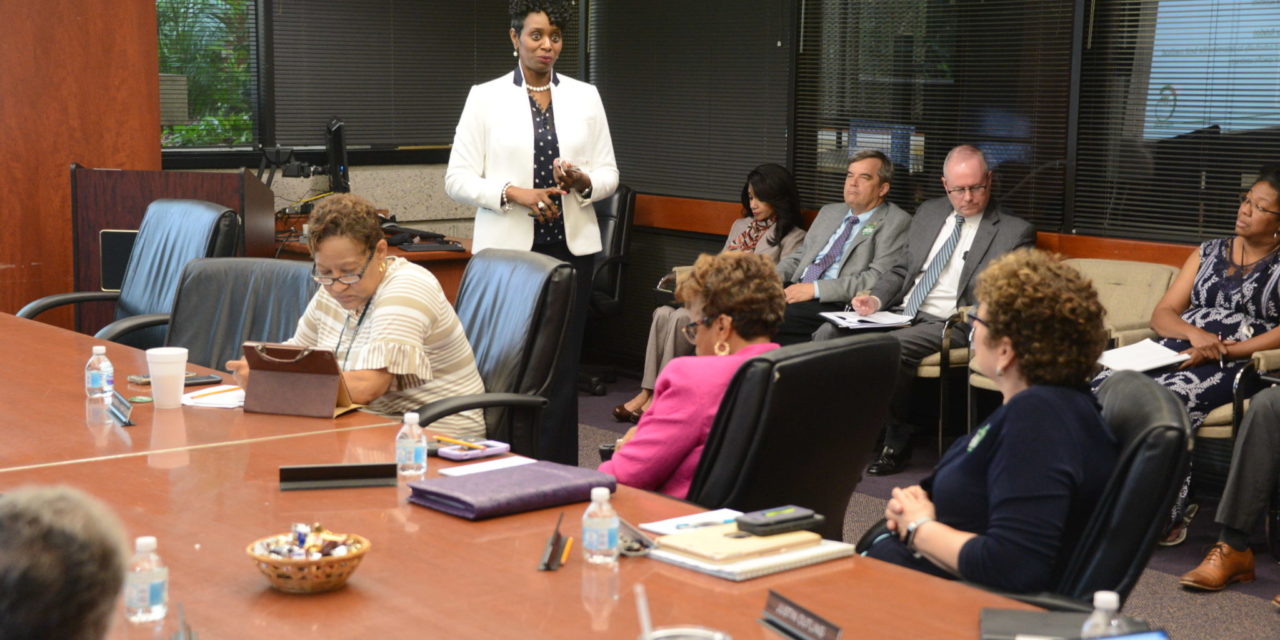On July 1 doing business for the City of Greensboro got a lot more complicated and a lot less local because of the plethora of new Minority and Women’s Business Enterprise (MWBE) initiatives.
The one that makes contracting less local is that the area of eligible MWBE contractors has been expanded from 10 counties to 27 counties.
These major changes in the way the city conducts business are the result of the disparity study the city received from Griffin & Strong in 2018. Doing the disparity study was the first step in an effort to increase the amount of money the city spends with MWBE contractors.
The most significant change is proposed in the smaller contracts, those under $30,000 that do not have to be bid.
According to Assistant City Manager Kim Sowell who made the presentation to the City Council at the work session Tuesday, July 16 in the Plaza Level Conference Room, in the past for a department head or director would contact a contractor usually one they had done business with before and contract out a small job like a $1,000 painting contract.
The proposal is that going forward the department head would instead contact the MWBE office and would be given the names of three women contractors, three minority contractors or three non-MWBE contractors and would have to choose from those three contractors. The categories would be changed on a rotating basis.
City Councilmember Justin Outling said that he is all for increasing the use of MWBE contractors, but “as a lawyer that harkens to being discriminatory.” He added that for a particular contract “You’re not even in the game because you are in a protected class.”
City Attorney Chuck Watts said he understood the recommendation came from Griffin & Strong. But others said the recommendation had not come from Griffin & Strong but from the city’s MWBE committee. There was quite a bit of unorganized discussion about exactly who was responsible for this suggested program and if it had been legally vetted at all.
Outling said if experts in that area of law said it was legal, he wouldn’t argue, but that on its face it appeared discriminatory because in all three scenarios at least one protected class would be denied any opportunity to win the contract because they were in that protected class.
After the meeting, Watt whose first day as city attorney was June 1, said that the program presented by Sowell was a proposal and as far as he knew it had not been legally vetted by his office, so he didn’t have a legal opinion on it. He said he was looking to Griffin & Strong for advice on whether a program similar to that could be implemented and he would follow that advice.
Whatever the program, the plan is for all contracts no matter how small to go through the five person MWBE office.


Looks to me this will be a set aside.
My understanding is set asides are illegal.
Curious about all those non-MWBE contractors being eliminated from the bid process when they pay city taxes.
From what I hear about this, city staff is totally against this. They were not involved in this decision. As it is now, the city has a huge problem now attracting contractors to bid on city work due to the current MWBE guidelines and I am sure the taxpayers would not appreciate spending more money on set asides.